The power that Phil Spencer's shelf holds.
Over the past year, whether we've wanted to or not, we've seen the insides of a lot of different rooms. Bedrooms, living rooms, and office spaces have become the background of every Zoom meeting, and you'd be lying if you said you never looked closely at the knickknacks sitting on someone's shelf. For many gamers, one shelf, in particular, has captured the imagination of the internet, and that shelf belongs to none other than Xbox boss Phil Spencer.
Since Phil first hid the Xbox Series S in the background of a call a full two months before its official reveal, the shelves that make up Phil's background have since been the subject of theories and rumors all over the internet. It hit a fever pitch recently when Phil made an appearance at the Microsoft AI and Gaming Research Summit, where we saw a Nintendo Switch sitting prominently in his background, among many other notable memorabilia (It made another appearance at Xbox's Game Stack Live, though this time Phil was missing from the frame).
Now, what could Phil be doing with a Nintendo Switch? Could this be hinting at a collaboration between Nintendo and Microsoft? Could Xbox Game Pass be coming to the hybrid handheld, or is this simply a red herring, placed behind Phil to distract us from Microsoft's real goal — world domination? Strap on your tin foil hats, friends, and let us take a step back, track Microsoft and Nintendo's budding relationship, Nintendo's relationship with streaming, why it would make sense for both companies to share the same console, and maybe why it wouldn't.
The writing on the wall
Before we forecast the future between these two gaming giants, let's take a step back. Years ago, if you told me Microsoft would publish games on other platforms, I'd probably scoff. That was until Microsoft bought Mojang for 2.5 billion dollars. It would've been in Microsoft's power to cut support for other versions of Minecraft then and there, but Microsoft continued to support other platforms, eventually breaking down barriers and allowing cross-play between all versions of Minecraft.
Microsoft was doing something new and becoming more platform-agnostic than ever before. These were just the first, seemingly inconsequential seeds sown that would hint at, just maybe, Microsoft published games showing up on platforms outside of the Xbox or PC were not out of the realm of reality.
But then around 2019 something interesting happened, well a few interesting things, actually. We started to see a steady trickle of Microsoft-related projects appearing on Nintendo's machine.
It started small at first: Hellblade: Senua's Sacrifice popped up on the Nintendo Switch in April 2019, and while the game wasn't an Xbox exclusive when it originally released in 2017, by the time it hit the Switch, Ninja Theory was a Microsoft-owned studio. Not the most surprising release in the greater scheme of things, sure — but then Microsoft-owned characters Banjo & Kazooie showed up in Nintendo's all-star fighting game, Super Smash Bros. Ultimate that July. Again, not too surprising — the bear and bird have historically been associated with Nintendo and Smash Bros. has had its fair share of guest characters.
But then that September, Ori and the Blind Forest, an award-winning Metroidvania published by Microsoft, made its way onto the Nintendo Switch. A bonafide Microsoft IP, born and bred on the Xbox, was playable on the Nintendo Switch. What was going on? Something distinctly different was brewing at Microsoft.
In the same year, Microsoft's Game Pass was also evolving into the premium service we know today. Xbox Game Pass Ultimate, a new Game Pass tier, was also announced. With this, we saw Xbox Live services combined into a single subscription that also includes Xbox Game Pass on PC. It was also the same year that xCloud, or Xbox Cloud Gaming, was finally made available to the public.
Xbox games on your phone and on your PC...and on your Switch? Microsoft was determined to get games on seemingly any device they could, and that's also when the first rumors of Xbox Game Pass on Switch started to emerge.
The future will be streamed
At this time, Game Streaming was just starting to break into the mainstream, with Google Stadia, Nvidia GeForce Now, and Xbox Cloud Gaming at the forefront. Both services made it possible to stream games directly onto your device, as long as you had a stable internet connection. The difference, of course, was that Microsoft's Xbox content made Xbox Cloud Gaming much more appealing. With every first-party Microsoft title releasing on Game Pass the same day they hit stores, this was hard logic to argue.
The budding game streaming service was packaged along with Xbox Game Pass Ultimate the following year. This meant that with a Game Pass Ultimate subscription, you had access to 100 games across your Xbox One, Xbox Series X and S, PC, and Android device.
Clearly, there was a paradigm shift at Microsoft, and their focus was less on selling Xbox's, but rather on growing Game Pass subscriptions
Microsoft was literally covering all of its bases. If you had an older console or a brand new console, you got support, if you had a high-end PC, you got support, and if you had an Android device, you got high-quality games streamed directly to your device. And just recently, Microsoft has managed to extend Xbox Game Cloud's range to cover PC as well as iOS devices.
Clearly, there was a paradigm shift at Microsoft, and their focus was less on selling Xbox's, but rather on growing Game Pass subscriptions, and targeting not only high-end PCs and their own consoles, but also low-end PCs, tablets, and mobile devices, which are key to Microsoft's future success.
With that knowledge in mind, we'll turn the microscope over to our favorite portable machine, the Nintendo Switch. How do they fit into this story?
The Nintendo factor
Releasing in 2017, the Nintendo Switch was a breakout success, on par with the Nintendo Wii. Everyone and their mother wanted a Nintendo Switch, and Nintendo managed to keep a steady stream of excellent first-party games flowing and became the place to be for indie developers. The Switch had the Mida's touch, and everything it touched, whether it a brand-new IP or a Nintendo classic, was a hit.
Nintendo was proving that you don't need cutting edge visuals or 60 fps to be a hit — the game just needed to be good. In the famous words of former Nintendo of America boss Reggie Fils-Aimé: "if it's not fun, why bother?"
In the famous words of former Nintendo of America boss Reggie Fils-Aimé: "if it's not fun, why bother?"
But even with Nintendo's library of hits, the hardware limitations became more apparent as time went on, and despite the occasional "impossible" port, it was starting to seem like the Switch wouldn't be able to keep up its third-party support, something Nintendo has historically struggled to maintain. However, Nintendo seemed like they were adamant about circumventing that, not with new Nintendo Switch Pro (that may or may not arrive later this year) but with the introduction of streaming. After making Resident Evil 7 and Assassin's Creed Odyssey available via streaming exclusively in Japan, Nintendo tried their luck everywhere else in the world, and during the October 2020 mini-Nintendo Direct, Control was made available on the Switch via streaming, with Hitman 3 arriving January 2021.
Switch owners could now take in two visually demanding games, with two equally demanding price points. The option was nice, but $40 to $60 dollars for access to a version of the game you could never really own was less than ideal. If only there was some sort of streaming service that could bring a plethora of games to the Switch for a monthly fee. Oh wait, but there is. But who comes out on top in this situation?
What's in it for me?
Xbox Cloud Gaming on the Nintendo Switch could be a big win for both companies in both the short and long term. It's clear that Microsoft wants to get Xbox Game Pass on as many platforms as possible, and their acquisition of Zenimax just ensured that there will be big-name titles on the service for years to come. Xbox Game Pass could provide Nintendo fans with more action-focused titles like Halo or Gears of War, while tapping into the 80 million Nintendo Switch owners, including about 20 million Japanese Nintendo Switch users. That's potentially 20 million new Game Pass subscribers in a place where Microsoft has struggled to make a dent for almost 20 years.
As of this writing, Xbox Game Pass has about 23 million subscribers and is still growing. Xbox Game Pass is working for Microsoft and can potentially grow tenfold on the Switch.
Nintendo has a lot to gain as well. In addition to filling the gaps in their own catalog, Nintendo could include the Game Pass in their own Nintendo Switch Online package to make the service more appealing to those who aren't interested in just NES or SNES games. The additional 100 games available on the service will only make the Nintendo Switch a better deal as the system matures and will extend the Nintendo Switch's lifespan even further.
The enemy of my enemy is still my enemy
Now, why would companies want to help one another? Will having Game Pass being on everything cheapen the Xbox? Would Nintendo ever agree to bring a big name like Mario or Zelda onto Game Pass? Would Game Pass steal potential sales from developers? All of these questions can be answered with a resounding no, but there are reasons why it wouldn't work between the two.
For one, cloud-based gaming is still in its infancy, and while it's convenient, it also requires a steady internet connection, something that might not be available to everyone yet. Even in the US, having a decent internet connection could come down to what part of the country you live in. And the Switch doesn't have a mobile internet connection, which means you'd be playing at home, which means that one of the main draws — its portability — would cut into what you're able to play.
And while Nintendo would gain third-party options, would Game Pass dissuade developers from making actual Switch versions of their games, or would they just settle on cloud-based versions of their games? Meaning you'll never actually own the games you're playing. Digital sales are up, yes, but at least you have something downloaded on your console or microSD. For me, when I spend $60 on a game, I want to really own it, and not just an access pass to a cloud version that could potentially go away one day.
Nintendo is also a traditionally conservative company and has previously turned down advances from Microsoft before. These are the people that don't even have Netflix on their platform! In fact, according to industry analyst David Gibson, Nintendo is not interested in bringing a service like Game Pass to their system at all. Is it because they don't see the value? Or maybe they have their own answer to Game Pass? Maybe they have plans to revitalize their Virtual Console offerings?
Perhaps it's all just a dream
Of course, perhaps we've tied our tinfoil hats too tightly and are cutting off circulation to our insane brains. Maybe Phil's shelf means something much smaller, like Master Chief for Smash or another Xbox One port optimized for the Switch. It could mean nothing at all, or it could mean everything. At the very least, we know that Phil Spencer is a fan of both the Switch and of stirring up the internet rumor mill.
What do you think Phil's shelf means for Nintendo? Could there be a world where Game Pass is available on the Switch, and would you buy into it? Or maybe you think it's something else, like a port or another character in Smash? Do you even think that maybe Nintendo games would show up on the Xbox? Let us know in the comments.






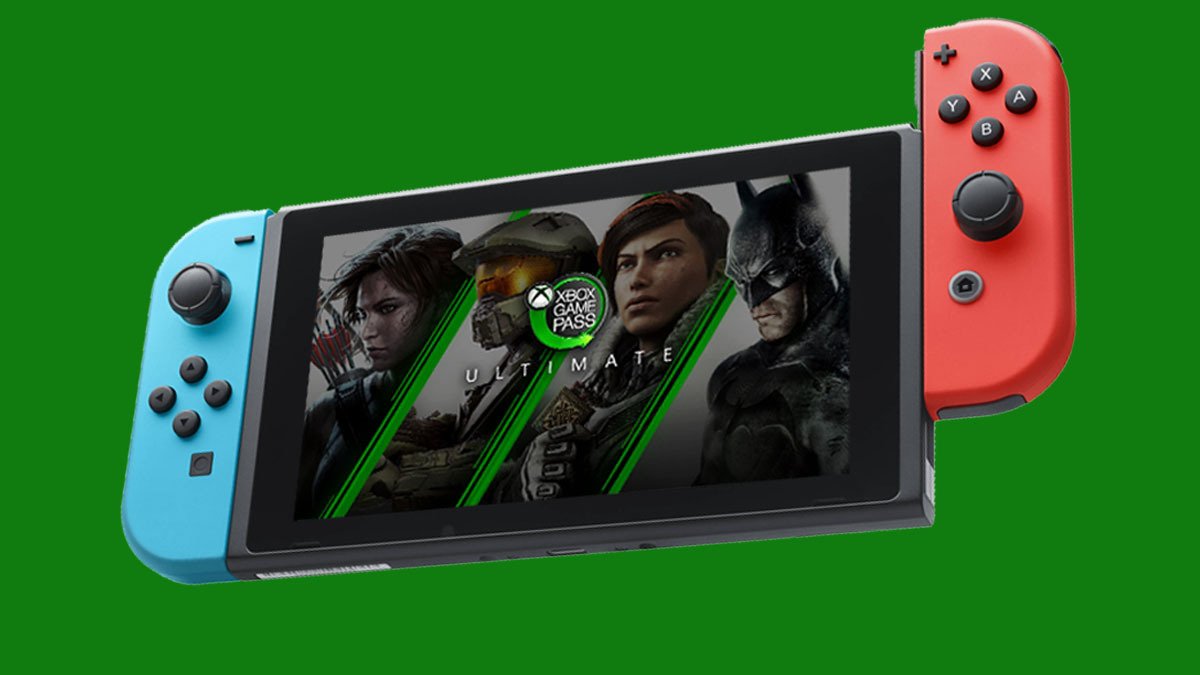
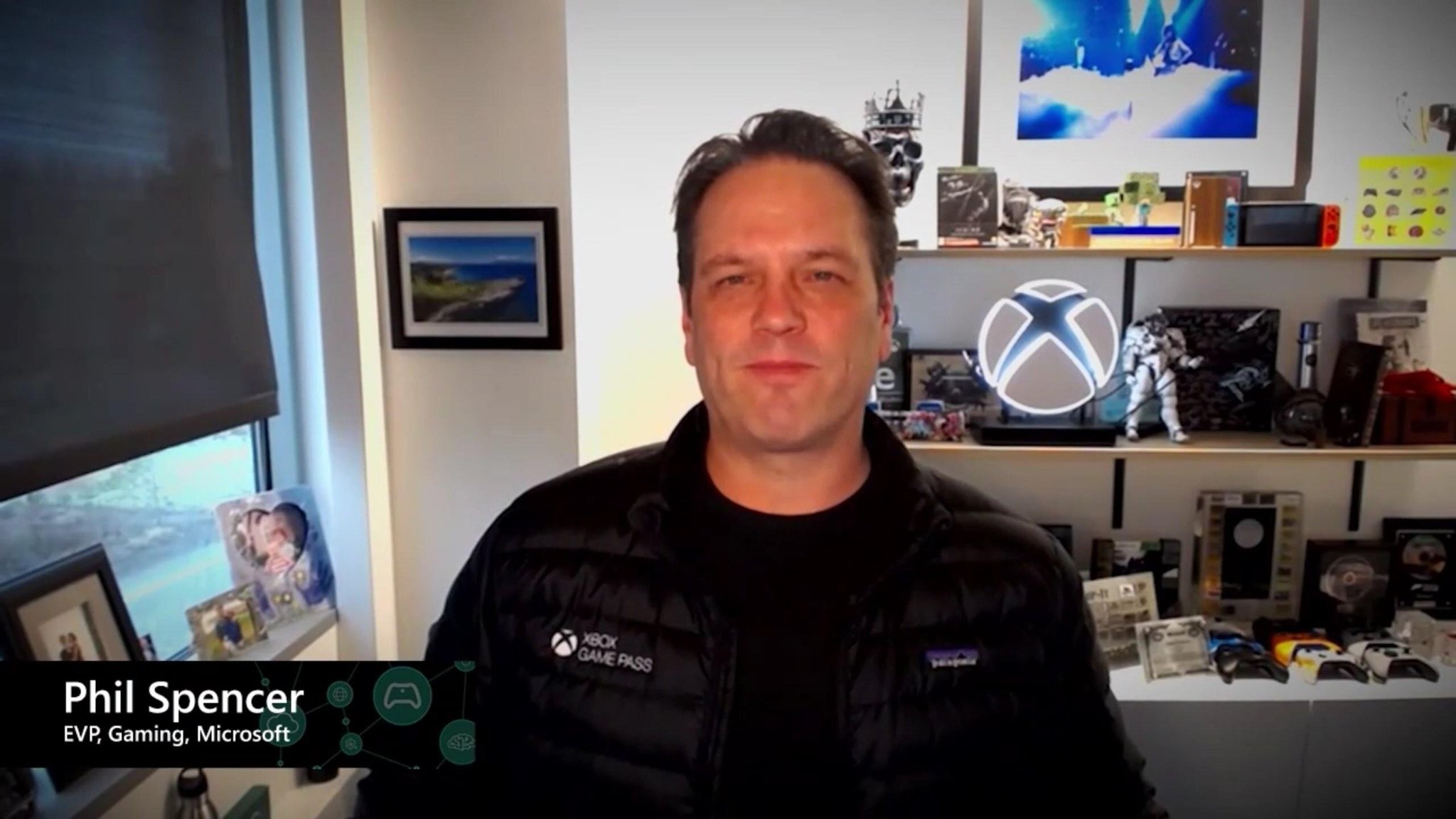
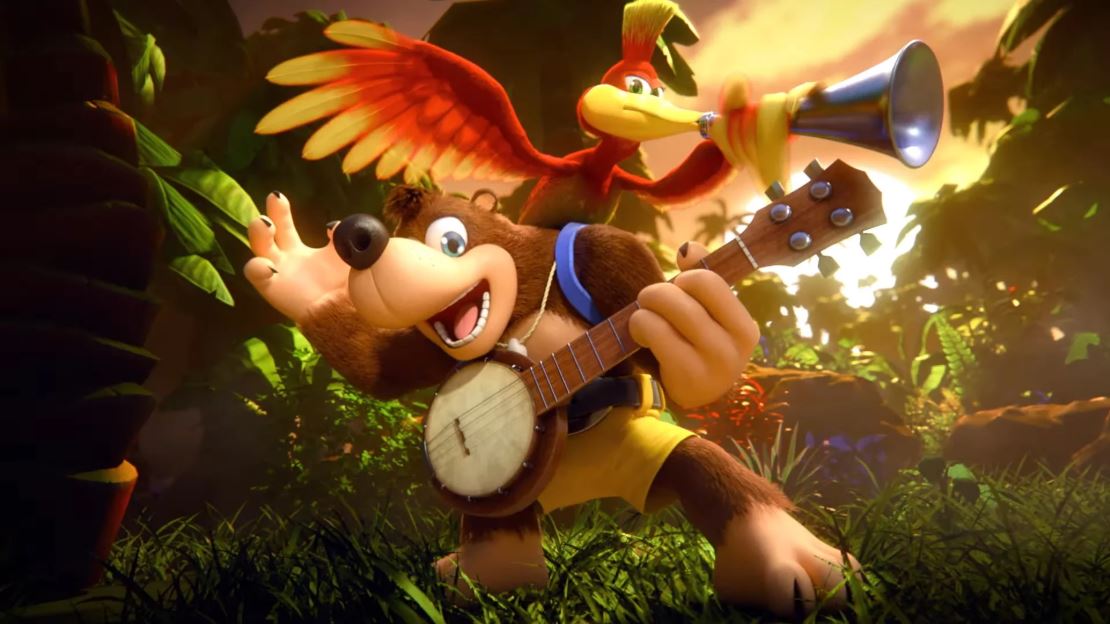
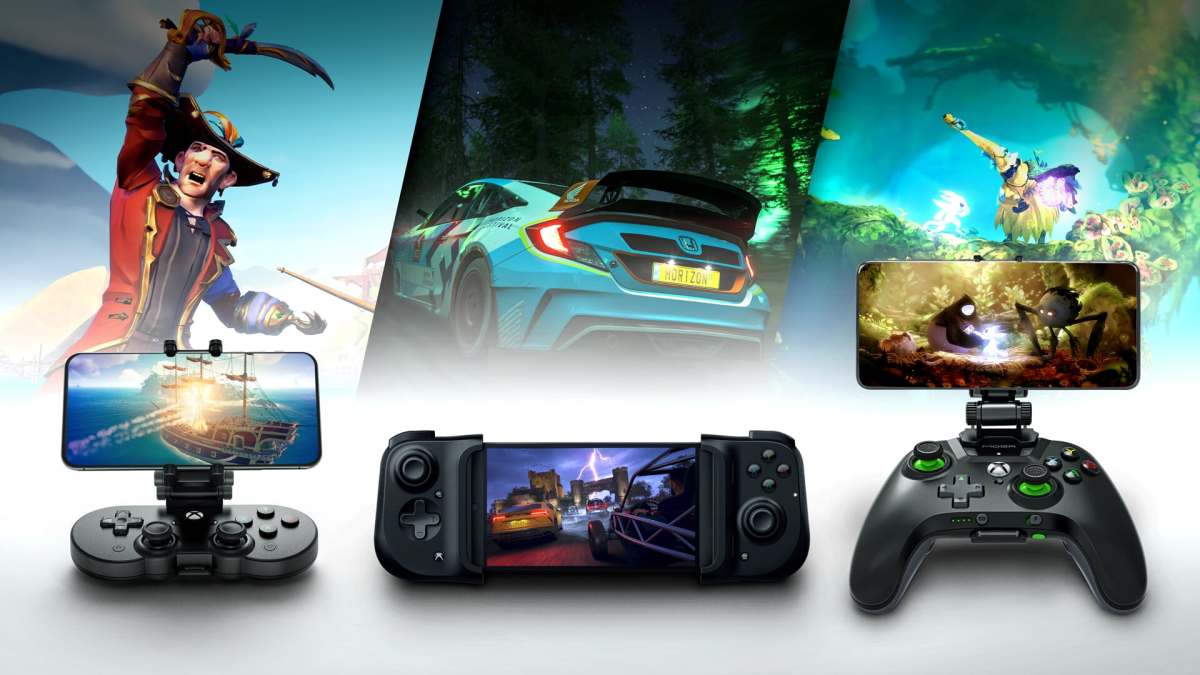
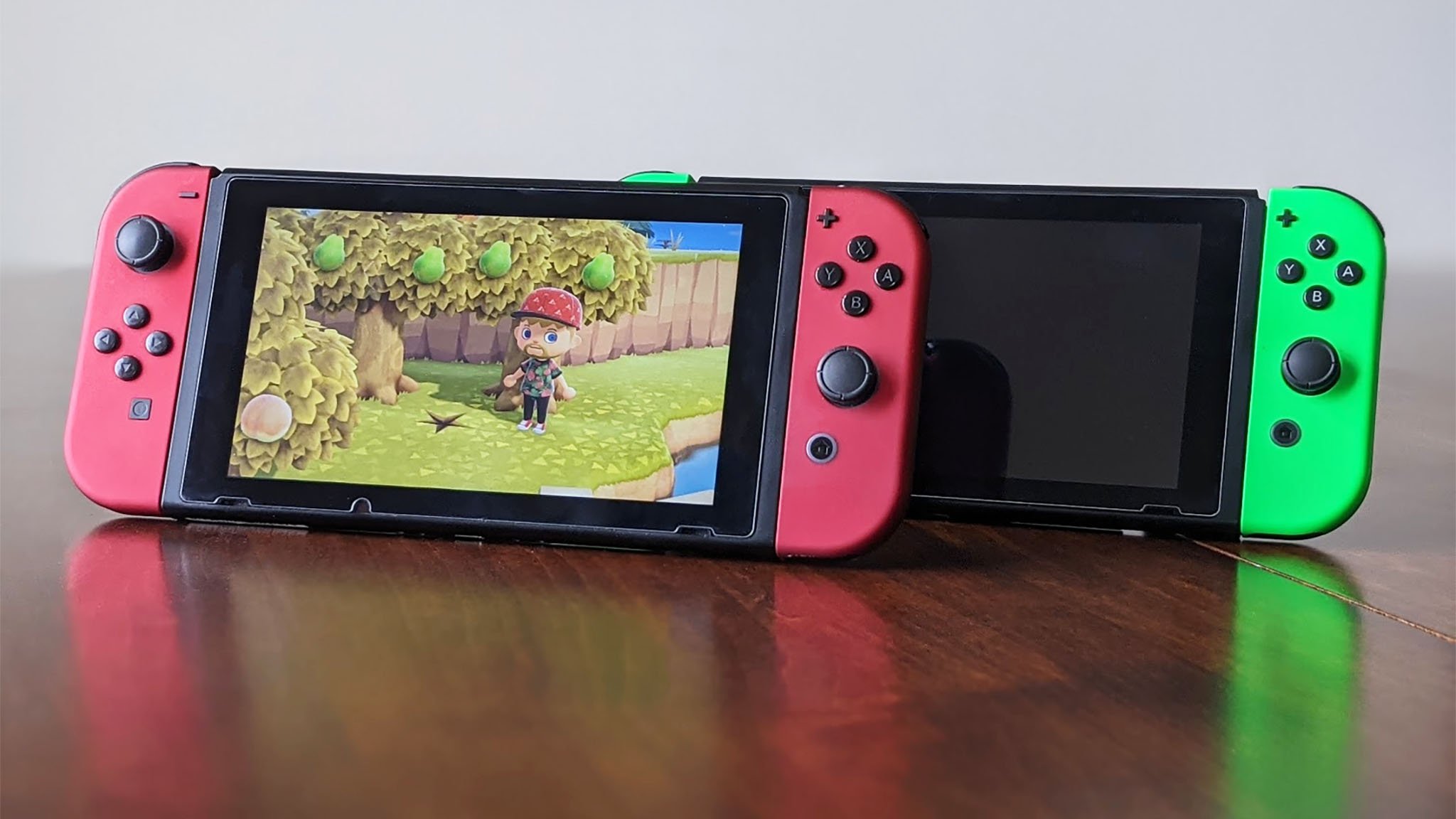
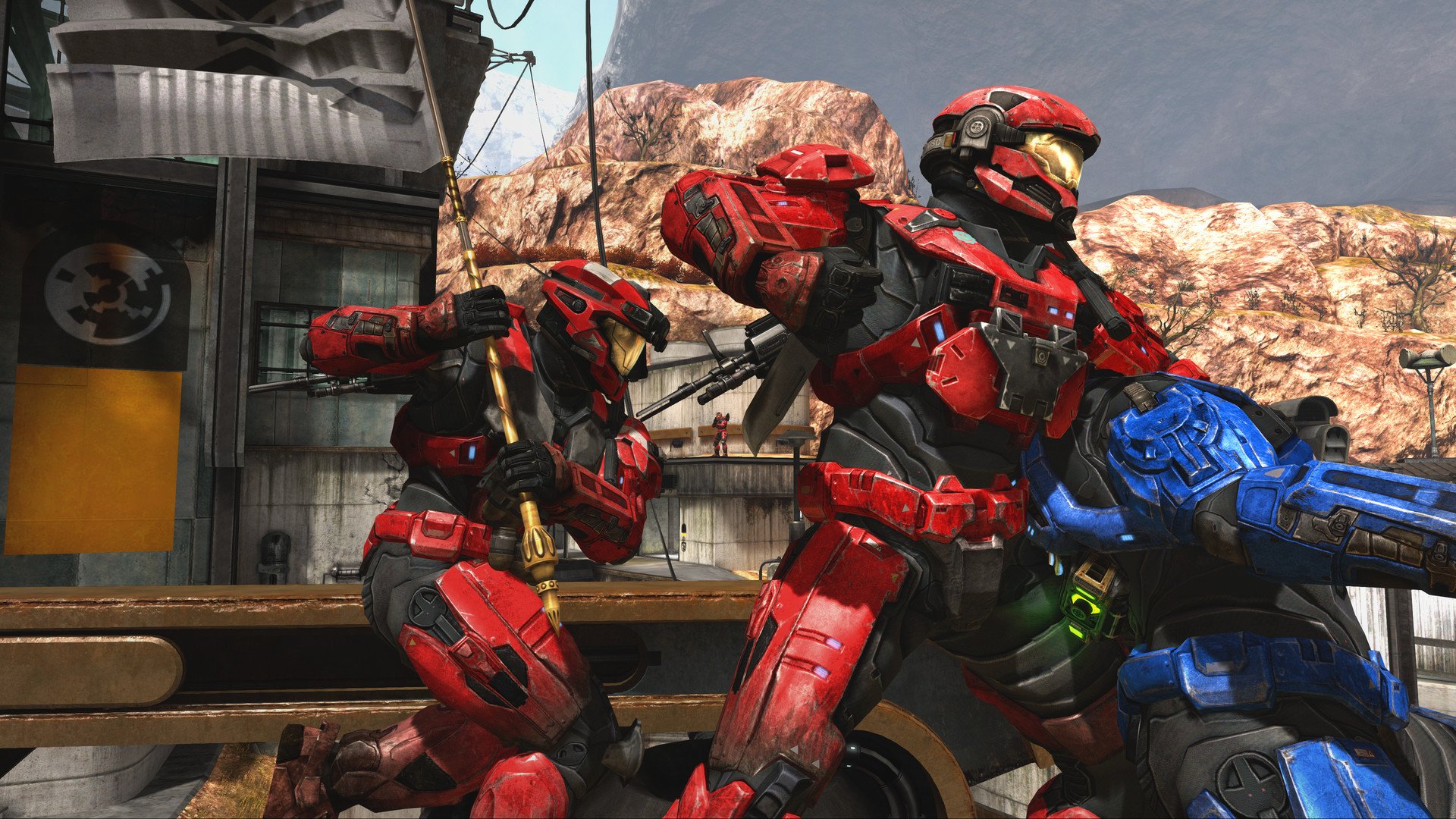
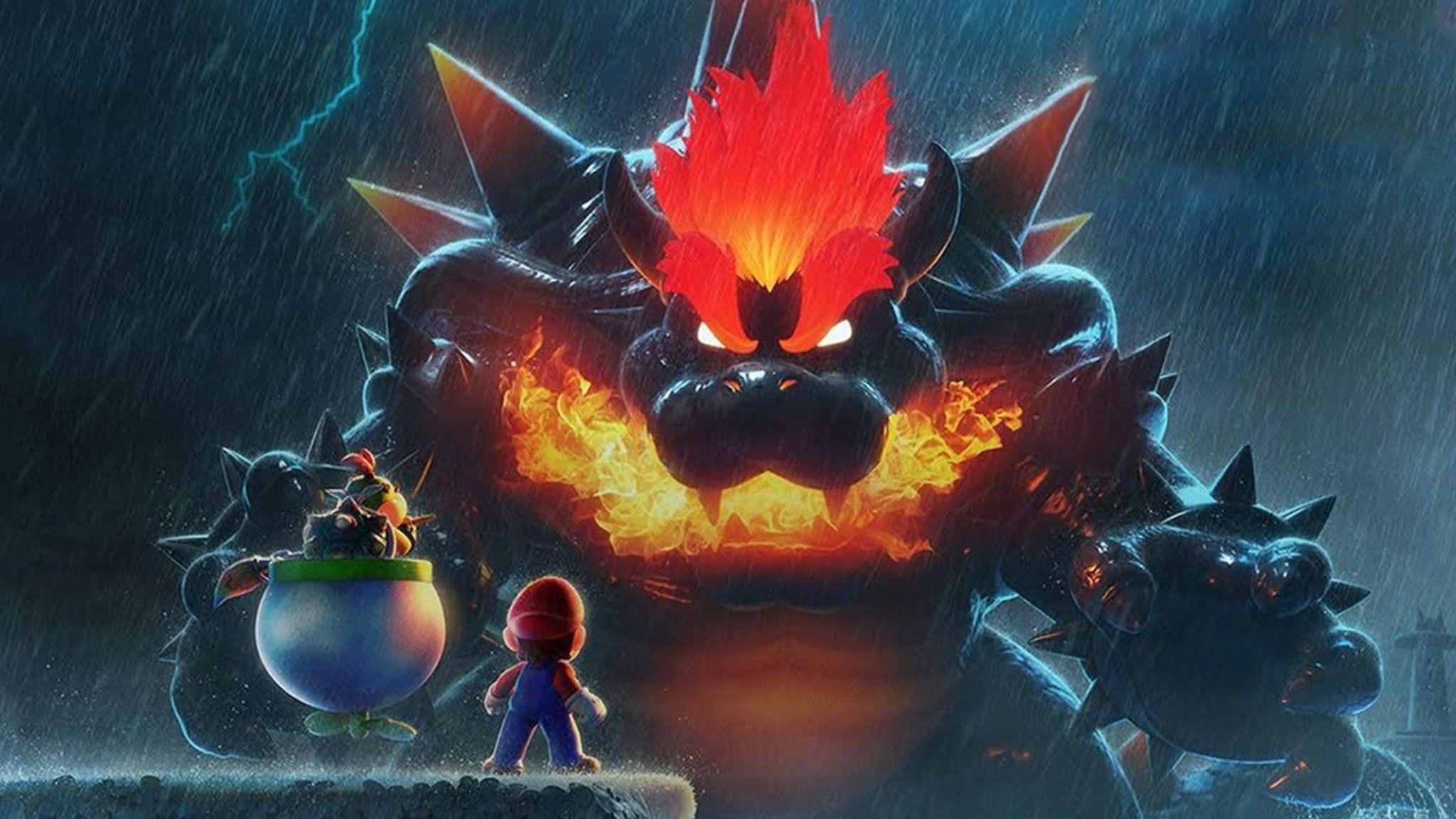
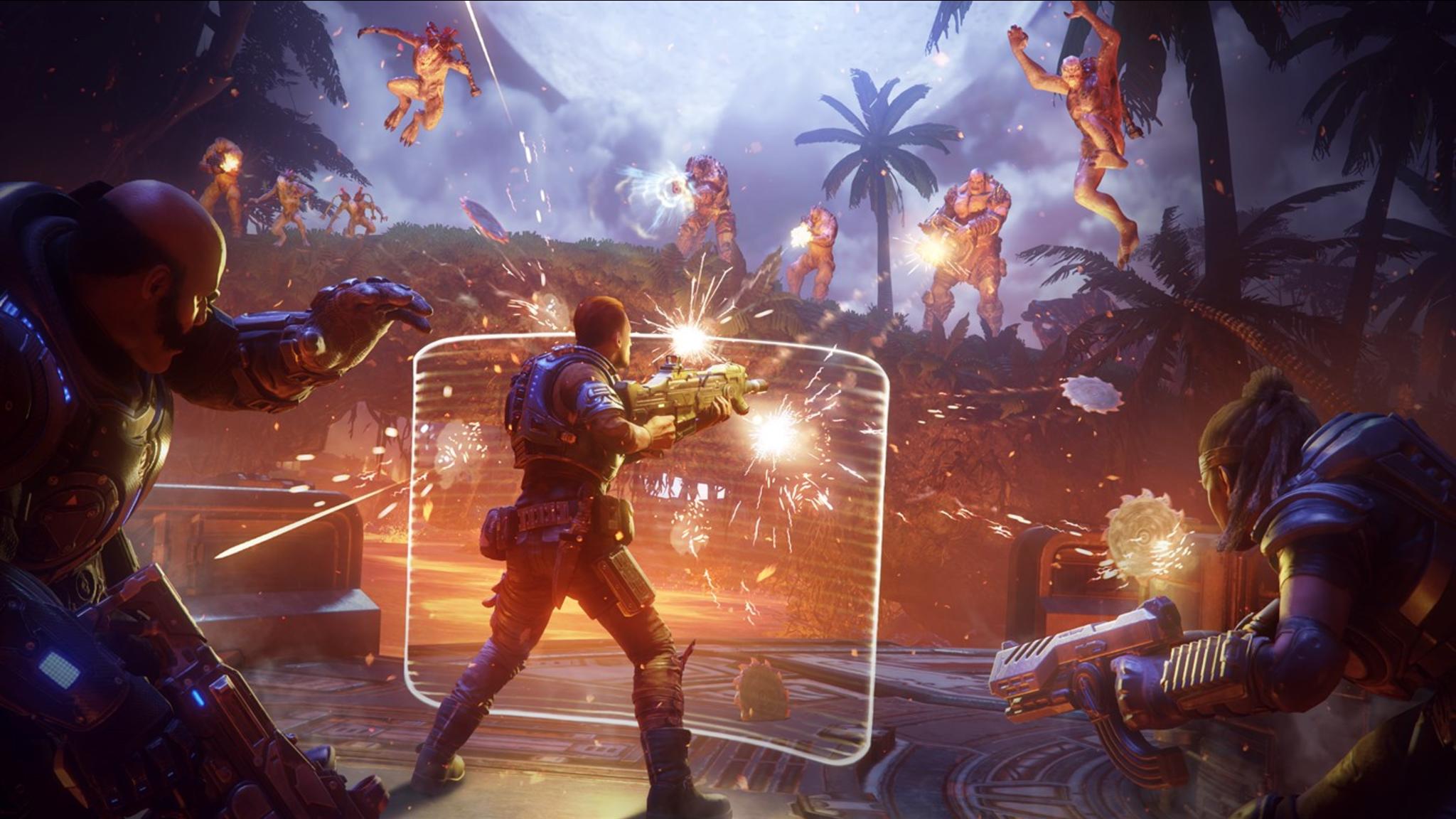



0 comments:
Post a Comment